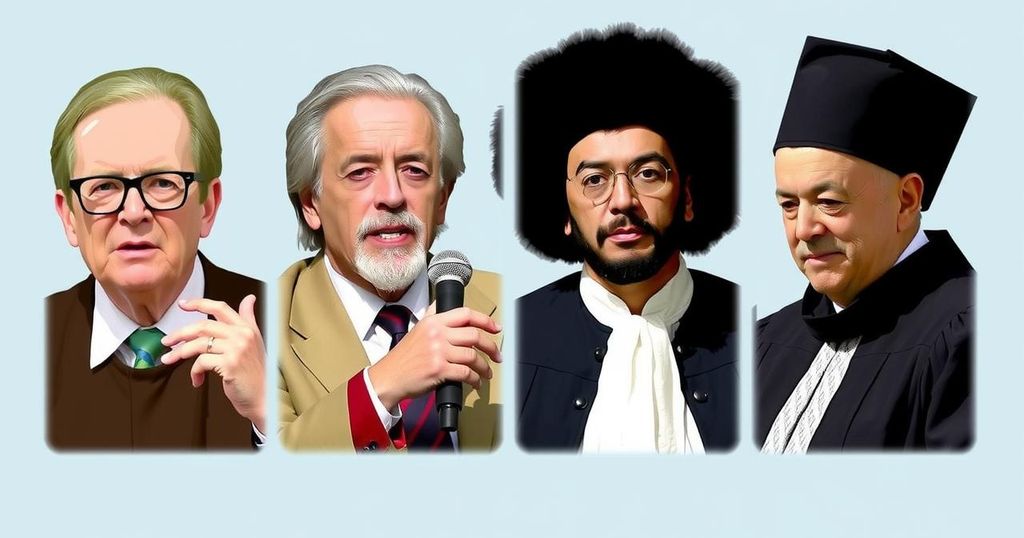World news
ANDRES MANUEL LOPEZ OBRADOR, ASIA, ASSOCIATED PRESS, BOLIVIA, CONSTITUTIONAL COURT, CORRUPTION, CUBA, DEMOCRACY, EL SALVADOR, EV, EVO MORALES, LATIN AMERICA, MARIS, MARISOL NOGALES, MEXICO, NORTH AMERICA, OPPOSITION, PHILIPPINES, POLITICS, SOUTH AMERICA, THE ASSOCIATED PRESS, TRADE RELATIONS, TRIBUNAL
Ethan Kumar
0 Comments
Bolivia’s Judicial Elections: A Case Study in Democracy and Judicial Independence
Bolivia uniquely conducts elections for its top judges, a practice that has drawn criticism for compromising judicial independence and politicizing the judiciary. With growing concerns about manipulation and partisanship, the upcoming elections will be pivotal for the nation’s democratic integrity and serve as a case study for other countries exploring judicial reforms.
Bolivia is notable as the solitary nation worldwide that holds popular elections for its highest judicial positions. As the country prepares for this electoral event, informed participation remains a challenge amid limited public awareness of the candidates. With an eye towards similar reforms in Mexico, the Bolivian example highlights the complexities and implications of popularly elected judiciaries amidst ongoing political strife. Critics argue that such a system has compromised judicial impartiality, resulting in a judiciary perceived as a tool of political manipulation rather than an independent arbiter of justice.
The scheduled elections for Bolivia’s judicial posts, set against a backdrop of political tensions, are a culmination of two decades of reform efforts. This election cycle, initiated under President Luis Arce, follows a history of controversial reforms initiated by previous administrations. As Bolivia attempts to negotiate the line between democracy and judicial independence, the nation faces the risk of exacerbating the political fragmentation that has afflicted its justice system in recent years.
This election marks the third attempt to elect judges through a popular mandate, echoing the tumultuous past elections that preceded it. Observers note that public cynicism and apathy may lead to low voter turnout, as citizens regard the selection process as fraught with manipulation, often favoring political loyalty over judicial qualifications.
Bolivia’s judicial election mechanism is rooted in a framework that contrasts sharply with the traditional judicial appointments seen in many democracies. This unique model was formalized over a decade ago as part of a broader effort by political leaders to reposition the judiciary within their political landscapes. The elections have often been viewed through the lens of partisanship, raising concerns from national and international observers about their impact on democracy and judicial integrity in the region. The shift to a popular vote for judges has drawn both criticism and skepticism from legal experts and activists, who argue that it diminishes the judiciary’s independence while allowing political figures to consolidate power. In recent elections, the role of the Constitutional Court has come under scrutiny, particularly regarding its influence on electoral processes and the appointment of judges. With accusations of legal manipulation and strained political relationships, the stability of Bolivia’s legal framework remains in question, prompting critiques from various stakeholders concerned about the implications for the rule of law and democratic governance.
The upcoming judicial elections in Bolivia encapsulate significant challenges facing the country’s democratic institutions, particularly regarding the perceived politicization of the judiciary. With a history marked by controversial reforms and political maneuvering, these elections will be crucial in determining the direction of Bolivia’s legal system as it grapples with both internal discord and external scrutiny. Observers will be watching closely to assess the implications of these elections on democracy in the region, particularly as other nations, such as Mexico, consider similar reforms.
Original Source: abcnews.go.com




Post Comment